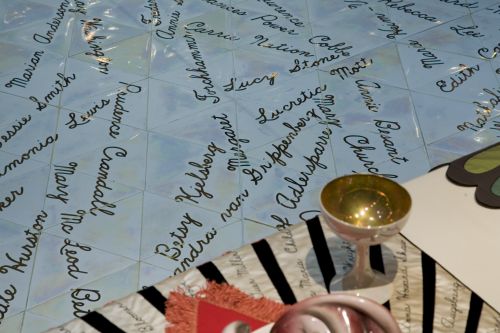Margaret Fell Fox
b. 1614, Marsh Grange, Lancashire, England; d. 1702, Swarthmoor, Lancashire, England
Margaret Askew married the barrister Thomas Fell in 1632, becoming lady of Swarthmoor Hall in Lancashire. In 1652, she was converted to Quakerism by its leader, George Fox, and Swarthmoor Hall became a center of Quaker activities during the sect’s early years of persecution by the English crown. Margaret immediately took a leading role in the development of Quaker doctrine, institutional structure, and missionary work, becoming a minister and political spokesperson of the fledgling movement. Perhaps her most important contribution was the consolidation of the women’s meeting as an integral aspect of Quaker practice. In 1660, she addressed to King Charles II a defense of the Quakers’ commitment to peace and their refusal to swear allegiance to the crown (the reason so many of them were imprisoned). In 1663, Fell and Fox were arrested for holding meetings at Swarthmoor Hall. Fell’s four-year incarceration provided time to write several tracts, including Women’s Speaking Justified (1666), in which she defended the right of women to be Quaker preachers. In other writings, she did not hide her contempt for the Anglican hierarchy, referring to church officials as “debauched smearmongerers.” She and George Fox married in 1669. They lived largely separate lives but were united in their devotion to the Quaker cause.

Related Place Setting
Related Heritage Floor Entries
- Abigail Adams
- Hannah Adams
- Mary Alexander
- Penelope Barker
- Helen Blavatsky
- Mary Bonaventure
- Anne Bradstreet
- Margaret Brent
- Hannah Crocker
- Marie de l’Incarnation
- Mary Dyer
- Mary Baker Eddy
- Mary Goddard
- Catherine Greene
- Selin Hastings
- Henrietta Johnston
- Ann Lee
- Judith Murray
- Sarah Peale
- Margaret Philipse
- Eliza Lucas Pinckney
- Molly Pitcher
- Deborah Sampson
- Mercy Otis Warren
- Susanna Wesley
- Phillis Wheatley